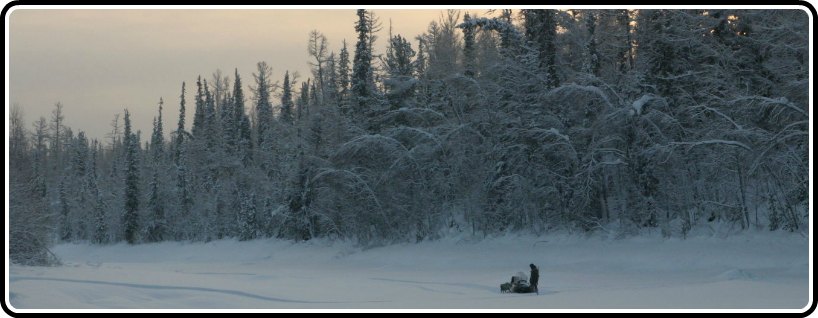
Apparently there are few sounds I love more than that of wood being split open. This is what Happy People: A Year in the Taiga taught me. Oh, it teaches other things too, as we spend a heavily compressed year with the seasonal ongoings of the Baktia village in the Siberian taiga; population 300. But with a passive streak and a tendency to oversimplify by romanticizing self-reliant villagers sans a semblance of modernity, this remains mildly interesting but largely forgettable fare.
Which is disappointing coming from Werner Herzog. Well, Werner Herzog and Russian director Dimitry Vasylukov who is credited as co-director. Vasylukolv and his cameramen shot the footage over the course of a year, and Herzog obtained the rights and permission to splice together and narrate his own version.
The year is spent mostly with a few trappers, binding together the notion of being one with nature in the frigid challenging void of Siberia. Being a trapper is a year-long process. Everything done contributes to their livelihood in a critical way. Chainsaws, snowmobiles and firearms are the only real signs of technology. Everything else, in building, trapping and basic ways of getting by, comes from traditional methods passed down from long ago. Canoes are carved, traps and skis are built, fish are caught, propellers and homes are properly protected, each with their own just-so process that can only be acquired from living there.
The trappers thankfully get to have voices of their own, at least some of the time. They explain to the camera the how and why of age-old processes. The main trapper, whose name isn’t said, separates himself from the kinds of stereotypes that oftentimes cling to his profession. Those that are desperate for whatever they can get for what they catch, those who are cruel and greedy. It goes without saying that this kind of life comes not only with the mere fact of being born into it, but growing the thick-skin necessary for living off the land in such constantly harsh conditions. But living in Baktia comes with a humble pride and a fondness for one’s work.
What Herzog lends to his version is his always welcome anthropological strand of elusive and deadened narration. But what he also lends is unfortunately an overkill air of reverence that comes with looking at those living in Siberia with a Western eye. And what’s more, this is entirely because of Herzog’s slant on the narration. This is especially hammered home in the actual trapping months, the time of year where all preparation pays off and man is simply one with their dogs and nature. Yet no time is spent on the women or children of the village, who see their husbands and fathers rarely if at all. What do they do all year? Herzog’s perspective narrows and oversimplifies, making this duller fare than it might have been.
https://www.youtube.com/watch?v=V1pOjj49d9Y
Full Schedule for the 2013 Portland International Film Festival
For details and more information


